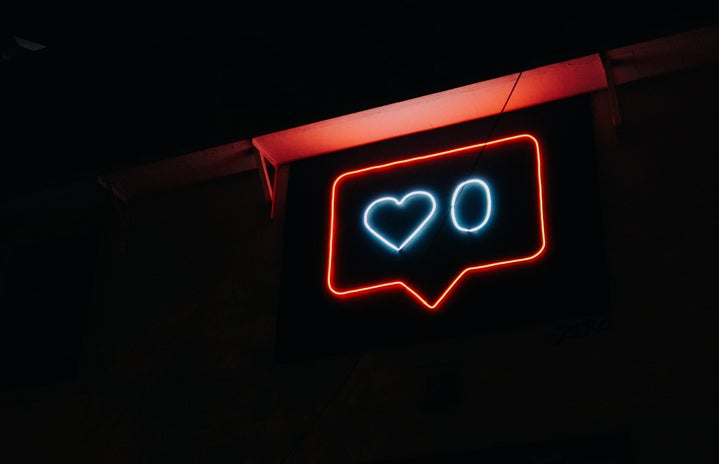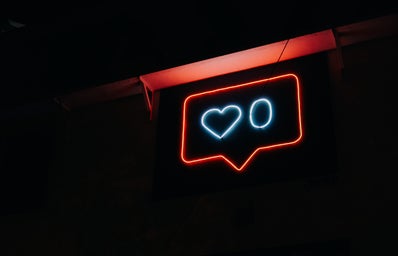Some days, I look at the way social media has been integrated into our lives, and I’m amazed that the constant cycle of information, the curation of our own highlight reels, and the FOMO haven’t driven us insane. But other days, I honestly can’t imagine my life without Instagram. Even so, one day I deleted all social media apps from my phone on a whim. I wasn’t going through any deep mental health struggles; I wasn’t looking to hide from particularly toxic posts; I just thought it might make me happier. So, I decided that I would spend one month “off the grid”. I deleted Twitter, Instagram, Facebook, and muted the Snapchat story of all of my contacts (I chose to keep the Snapchat app on my phone because some friends don’t have my cell phone number, and I wanted to make sure they could contact me). I essentially became the least connected from social media that I’ve been since I was fifteen, and it taught me a lot about myself and using the internet.
As it turns out, I don’t have to care about everything.
I was one of the last of my friends to get social media. I joined my first social media site, Facebook, at the end of my sophomore year of high school because I needed it for a club I was in. I didn’t get an Instagram until I was halfway through my senior year of high school, but, even so, it was important to me to be able to access social media. Before I deleted my apps, I thought I’d be constantly wondering what people were posting on Snapchat or Facebook or, especially, Instagram. But after a day or two without social media, I found that I didn’t miss it at all. I really didn’t care (and still don’t) about an aesthetic picture of someone’s Starbucks cup or their joke about the latest episode of The Bachelorette. I was still able to message and maintain relationships with the people in my life without keeping up with every piece of information they decided to present publicly.
An aspect of social media that took over a lot of my feed, and honestly was a big reason in deciding to take a break, was people’s “raw” or “vulnerable” posts, which typically came from finsta accounts and private Snapchat stories. These forums are places for people to post more private information about their lives, like details of their mental health situation, to a smaller subset of their friends. Now, whether or not a finsta is a healthy place to detail personal struggles is a very different conversation, but I found that before I took this break from social media, I became way too invested in the things people would post on these kinds of accounts. I carried the weight of everyone’s emotional problems around with me, when, very often, these people weren’t looking for advice or even for people to reach out to them—they just needed a place to vent. When I left social media, I still kept up with how my friends were and supported them through difficulties in their lives. But, I learned that I didn’t have to expend major amounts of mental energy and be so invested in everyone’s problems to continue being a good, supportive friend.
Spending time with your own brain is an acquired skill.
Another thing that surprised me about my social media usage was just how much of my time and thoughts were taken up by social media. I don’t mean that I was thinking about Twitter when I was actively doing something, but in my downtime, I was often on social media, and without it, I had much more time to spend with my own thoughts. It really allowed me to spend time with myself and reflect on events, big and small, that were happening in my life. Checking in with yourself is honestly so important, and it isn’t something that I was in the habit of doing when I started this social media break. Taking a minute out of each day to assess how you’re doing is as important to do for yourself as it is to do for a friend, and it makes life clearer for me than if I spent that time distracting myself from my stressors and problems on the Instagram explore page.
The world is significantly more complicated than Twitter makes it out to be.
This social media break didn’t just highlight improvements that I could make in my internet usage, but also it highlighted one of my least favorite things about social media: it leaves very little room for nuance. Most social media sites have character limits (or at least de facto character limits, because hardly anyone is going to read a 600-word Facebook post), and even when they don’t, social media is designed to be consumed rapidly and on a surface level. This means that a lot of details get left out. Social media posts typically include attention-grabbing slogans that we’ve all seen before. This leads to repetitive echo-chambers of conversation that usually split people into two extreme camps. This can be seen in many different topics of conversation: from whether pineapple goes on pizza, to whether or not certain celebrities deserve praise, to what the United States should be doing to combat climate change. This allows people to form opinions and choose sides quickly, but not every topic of conversation should be handled in this way. There are issues that need a bit more nuanced conversation to come up with a workable solution, and if Twitter is the primary platform where my generation is discussing complex issues, then those conversations are not necessarily going to be very productive. I did (and unfortunately still do) rely far too much on social media sites like Twitter and Facebook to be my sources of world news, which seriously limits the detail of information that I receive. Without social media, I was forced to seek out better sources, and I realized how important it was to do so, whether or not I had social media.
You don’t know what you (don’t) got ‘til it’s gone.
One of the unhealthiest aspects of social media for me, and for many others, is FOMO, the “fear of missing out.” Personally, when I scroll through my feed on any app, the thing most likely to be draining on my mental health (especially back when I was in high school) is seeing pictures and videos of friends at a social event without me. Social media has an incredible power to connect people, but it also has the ability to make people feel excluded. I used to think that FOMO was something I would always feel, but I found that taking a step back from social media decreased it immensely. It sounds so simple, but removing the evidence that I was “missing out” on things (because life is so busy, we’re always missing out on something) made me so much less worried about the things that I wasn’t doing; out of sight, out of mind. This break from seeing everyone’s posts allowed me to get used to the fact that what everyone else is doing on a Saturday night really doesn’t affect me at all. So now, even when I see those posts that make me feel like I’m missing out, I’m much less affected by them.
There is a way to make social media usage fulfilling and positive.
When people (especially older adults) talk about social media, it’s often seen as an entity that dictates our daily lives and controls our thoughts, but the truth is, we are in control of our experience with social media. Social media doesn’t have to be a necessary evil that we need to have in order to function and fit in, while it drains our mental health and our time. There are small but meaningful changes that can be made to make social media a much more mentally healthy place. For me, that meant unfollowing Twitter accounts that are full of repetitive rage (yes, even if they are kind of funny), spending downtime every day to make sure there’s nothing that I’m neglecting in favor of Instagram, and letting go of the influx of information about situations that just genuinely don’t need to involve or concern me. Social media has helped me to keep up with so many people that I am happy to have in my life, and I’m lucky that that no longer comes at the price of my own mental health



